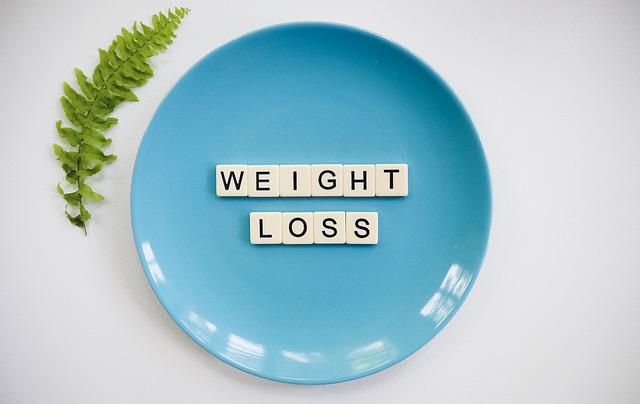The Mediterranean diet has become quite popular in recent years, and it’s easy to see why: This diet provides an astounding array of vital health benefits, ranging from heart health to cancer prevention to exercise motivation.
Beyond the scientifically proven health benefits, the Mediterranean diet is routinely recognized as a top diet because it accommodates dietary preferences, encourages food and flavor Variety, and includes items from all food groups, eliminating the restricted feelings associated with many diets.
Of course, there are downsides to every diet, but this diet can provide long-term habit modification and a lifestyle adjustment, both of which are important for long-term health. We listed some health benefits of following lifestyle of this diet.
Reduces your chances of developing heart disease
A large body of scientific evidence supports the concept that the Mediterranean diet is excellent for your heart.
A 2016 study of over 20,000 adults, for example, discovered that persons who follow this diet are substantially less likely to acquire heart disease1, and the researchers believe that adherence to this diet could prevent up to 4% of all heart disease cases.
Another study compared the risk of heart attack, stroke, and death from cardiovascular causes among persons who follow this diet and those who did not. The nearly five-year study showed that persons who adopted a Mediterranean diet had approximately 30% lower risks.

If you’re still not sure that this diet is good for your heart, check out this 2019 study review, which looked at 29 different studies on the Mediterranean diet. The review’s authors found that the Mediterranean diet protects against several types of heart disease.
Slowing Cognitive Decline
There is some studies show that a Mediterranean diet may reduce cognitive decline and prevent progressive disorders like Alzheimer’s. More research is required, but the existing findings are quite encouraging!
A 2016 review in Frontiers in Nutrition, for example, there is encouraging evidence that a Mediterranean diet is associated with improving cognition or reducing the conversion to Alzheimer’s disease.”
A 2015 study examined the effects of the MIND diet—a blend of the Mediterranean and DASH diets—on the brain. The researchers discovered that this diet “significantly reduces cognitive deterioration.”
Early research on the Mediterranean diet and disorders such as Alzheimer’s should not be used to make conclusions, but it appears that most experts agree that the Mediterranean diet, and variations on it (such as the MIND diet), can benefit brain function.
Could Aid in Weight Loss
Consider the Mediterranean diet if you want to lose weight. According to research, the Mediterranean diet can help people lose weight and keep it off. The Mediterranean diet has been demonstrated to help people lose weight nearly as effectively as a low-carb diet.

A big study published in 2018 (with over 32,000 participants) discovered that eating a Mediterranean diet lowers the incidence of abdominal obesity.
Can Lower Your Chances of Having a Stroke
The same study that indicated that a Mediterranean diet might save up to 6% of heart disease cases also noted that following a Mediterranean diet could help prevent up to 8.5% of stroke cases.
Furthermore, a 2018 study conducted in the United Kingdom discovered that eating a Mediterranean diet greatly reduces the chance of having a stroke—though the study authors do caution that this finding was only true in women, not males and that more research is needed.
Sometimes research findings are valid in one location but not in another; however, the link between the Mediterranean diet and a lower risk of stroke appears to exist in many places: A 2016 study published in the European Heart Journal followed almost 15,000 participants across 39 countries for nearly four years. The closer the participants adhered to a Mediterranean diet, the lower their chance of having a heart attack, stroke, or dying from cardiovascular causes.
Can Assist You in Preventing or Managing Type 2 Diabetes
It may appear contradictory that a diet high in carbs, such as pasta and ancient grains, could help manage or prevent type 2 diabetes.
However, there are a few essential criteria that make this reasonable:
- This diet emphasizes carbs from vegetables and whole grains, which do not have the same effect on blood sugar as refined carbs.
- The diet also contains a lot of protein and healthy fats.
- The diet inhibits the consumption of too many sweets and desserts.
- The diet promotes physical activity, which aids with diabetes treatment.
A 2014 assessment of nine individual studies examined the influence of the Mediterranean diet on diabetes risk, and the researchers discovered that following this diet can reduce diabetes risk by up to 19%.
Another study published in 2020 supported similar findings, stating that greater adherence to the Mediterranean diet helps decrease the risk of developing type 2 diabetes.
Arthritic Patients May Benefit
There is limited evidence that the Mediterranean diet can assist persons with arthritis in lessening pain since many of the foods in this diet are anti-inflammatory, which makes sense given that arthritis is an inflammatory disease.
Furthermore, the National Institutes of Health (NIH) recommends omega-3 fatty acids for the treatment of inflammatory illnesses, and the Mediterranean diet contains a high concentration of these good fats.
A 2018 systematic review of the Mediterranean diet for osteoarthritis, the degenerative type of arthritis, concluded that while additional long-term research is needed, the Mediterranean diet appears to be effective in alleviating arthritic symptoms.
Some Cancers May Be Protected
The Mediterranean diet is well-known and celebrated for its ability to protect against chronic diseases such as diabetes, heart disease, and metabolic syndrome. As it turns out, this anti-inflammatory and antioxidant-rich diet may help protect against some malignancies.


According to a 2017 analysis of studies, consuming a Mediterranean diet may protect against stomach cancer, liver cancer, prostate cancer, breast cancer, and head and neck cancer. According to the authors, the protective impact is “mostly driven by larger diets of fruits, vegetables, and whole grains.”
Another 2015 study compared the effects of this diet to a low-fat diet on breast cancer prevention in women. What were the outcomes? A Mediterranean diet, particularly one fortified with extra virgin olive oil, may even help prevent breast cancer.
It has the potential to lower your blood pressure and LDL cholesterol levels.
Blood pressure and LDL cholesterol (often known as “bad” cholesterol) are two critical indicators of health and your risk of developing a variety of ailments. When either marker is elevated, it can signal or be a source of health concerns.
Fortunately, there are numerous ways to control and lower your blood pressure and LDL cholesterol, one of which is the Mediterranean diet. In 2014, scientists examined the diets of over 800 firemen to see how their eating habits affected various health markers. They discovered that following this diet helps the cholesterol level, as well.
A 2018 study indicated that the Mediterranean diet, in general, can lower blood pressure in both those with and without Hypertension, while the study authors highlighted that additional research is needed to completely understand the Mediterranean diet’s effects on blood pressure.
In 2019, however, a study published in the journal Hypertension stated unequivocally that consuming a Mediterranean diet can lower systolic blood pressure.
Allows for Food Preferences
You can live on this diet whether you’re vegetarian, vegan, paleo, gluten-free, dairy-free, or something else entirely. Of course, the diet works best when all of the food groups it highlights are allowed, but you may easily adjust it to meet your dietary needs.
This diet is not considered restrictive by most experts because it includes plenty of carbohydrates, proteins, healthy fats, fruits and vegetables, and even certain delights in moderation (calling all red wine fans!).
Encourages Physical Activity
This diet encourages physical activity as part of a healthy lifestyle. This is a great addition, considering most adults in the United States do not exercise enough.
Furthermore, habitual exercisers are more likely to make healthier eating choices throughout the day. What’s intriguing is that the link between exercise and the Mediterranean diet may be a two-way street: In a small study, researchers discovered that consuming a Mediterranean diet, as opposed to the normal Western diet, may actually increase physical performance.
Emphasizes Variety and moderation
One major reason why this diet may be particularly beneficial to long-term weight loss is that it allows for a wide variety of foods and flavors, so you won’t become bored or feel confined. You may still enjoy carb-heavy foods, rich flavors, and even chocolate and wine on thistle diet, making it an excellent choice if you yo-yo diet due to restricted sentiments.
Furthermore, because this diet emphasizes fiber-rich and protein-dense meals, hunger should not be an issue, even if you are on a low-intake calorie diet. Whole grains, nuts, cheese, and salmon are examples of foods that keep you satiated for longer. You’ll also be cooking with healthy fats like olive oil, which can increase your satiety.
To Conclude
A diet should be chosen based on your values, beliefs, lifestyle, current health condition or difficulties, health goals, and food preferences.
While this diet has a plethora of remarkable health benefits, it may not be the appropriate for everyone, and that’s fine. But it can’t hurt to give it a shot!

